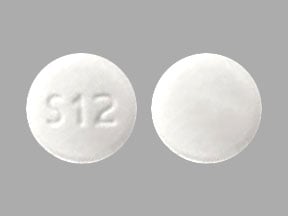
Tarceva Coupons & Savings Card – Discount Prices from $99.00
Brand for: Erlotinib
My prescription
Edit
100MG, Erlotinib (30 Tablets)
Select pharmacy

CVS
$7123.13
COUPON PRICE
Walgreens
$99.00
COUPON PRICE
Albertsons
$1142.44
COUPON PRICE
Walmart
$6821.24
COUPON PRICETarceva savings card
Show this card to your pharmacist
Walgreens
$99.00
BIN
ID
PCN
GRP
019876
LH130059FF
CHIPPO
LHX
Powered by
Related EGFR inhibitors prescriptions
More prescriptions for pancreatic cancer
Related EGFR inhibitors prescriptions
More prescriptions for pancreatic cancer
Tarceva (Erlotinib) dosage forms
Dosage Quantity Price from Per unit 25MG 30 Tablets $219.60 $7.32 100MG 30 Tablets $99.00 $3.30 150MG 30 Tablets $91.80 $3.06
| Dosage | Quantity | Price from | Per unit |
|---|---|---|---|
| 25MG | 30 Tablets | $219.60 | $7.32 |
| 100MG | 30 Tablets | $99.00 | $3.30 |
| 150MG | 30 Tablets | $91.80 | $3.06 |
Why was Tarceva discontinued?
Tarceva (erlotinib) has not been discontinued. It is still available and used in the treatment of certain types of cancer, such as non-small cell lung cancer and pancreatic cancer. However, there may be specific circumstances or regions where availability is affected due to regulatory decisions, market demand, or other factors. It is important for patients to consult with their healthcare provider for the most current information regarding their treatment options.
What is Tarceva used for?
Tarceva is used for the treatment of certain types of non-small cell lung cancer (NSCLC) and pancreatic cancer. It is typically prescribed for patients whose cancer has spread to other parts of the body and is used when other treatments have not been effective.
Is Tagrisso better than Tarceva?
The choice between Tagrisso (osimertinib) and Tarceva (erlotinib) depends on several factors, including the specific type of EGFR mutation present in the cancer, the stage of the disease, and the patient's overall health condition. Tagrisso is often preferred for patients with non-small cell lung cancer (NSCLC) that has a specific EGFR T790M mutation or as a first-line treatment for certain types of EGFR mutations. It is known for its efficacy in crossing the blood-brain barrier, which can be beneficial in cases with brain metastases. However, the decision should be made by the healthcare provider based on the individual patient's clinical scenario.
What is the most common side effect of erlotinib?
The most common side effect of erlotinib is a skin rash.
What are the toxicities of erlotinib?
Erlotinib can cause several toxicities, including rash, diarrhea, fatigue, and anorexia. Other potential side effects include interstitial lung disease, hepatotoxicity, and gastrointestinal perforation. Patients may also experience nausea, vomiting, and ocular disorders. It is important for patients to be monitored regularly for these adverse effects during treatment.
